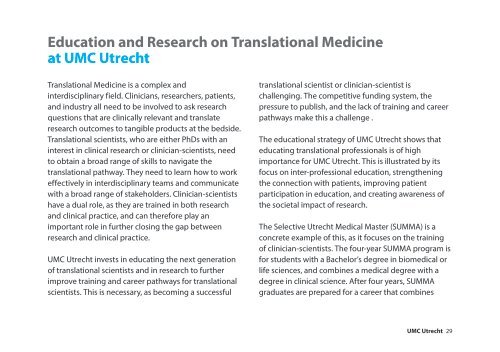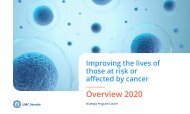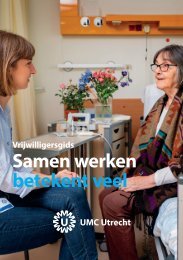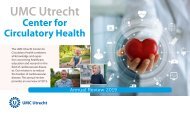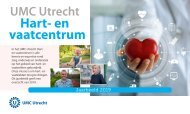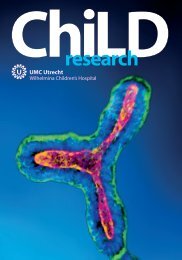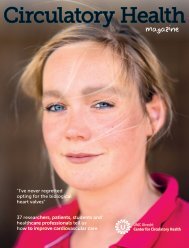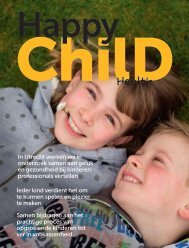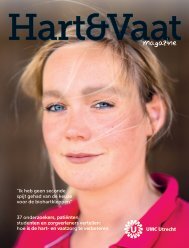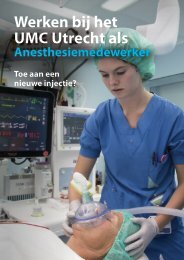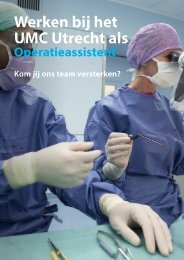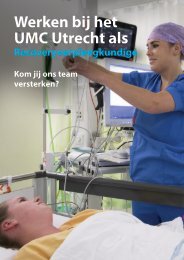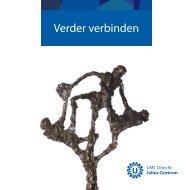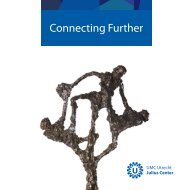RVB Translational Medicine Book
You also want an ePaper? Increase the reach of your titles
YUMPU automatically turns print PDFs into web optimized ePapers that Google loves.
Education and Research on <strong>Translational</strong> <strong>Medicine</strong><br />
at UMC Utrecht<br />
<strong>Translational</strong> <strong>Medicine</strong> is a complex and<br />
interdisciplinary field. Clinicians, researchers, patients,<br />
and industry all need to be involved to ask research<br />
questions that are clinically relevant and translate<br />
research outcomes to tangible products at the bedside.<br />
<strong>Translational</strong> scientists, who are either PhDs with an<br />
interest in clinical research or clinician-scientists, need<br />
to obtain a broad range of skills to navigate the<br />
translational pathway. They need to learn how to work<br />
effectively in interdisciplinary teams and communicate<br />
with a broad range of stakeholders. Clinician-scientists<br />
have a dual role, as they are trained in both research<br />
and clinical practice, and can therefore play an<br />
important role in further closing the gap between<br />
research and clinical practice.<br />
UMC Utrecht invests in educating the next generation<br />
of translational scientists and in research to further<br />
improve training and career pathways for translational<br />
scientists. This is necessary, as becoming a successful<br />
translational scientist or clinician-scientist is<br />
challenging. The competitive funding system, the<br />
pressure to publish, and the lack of training and career<br />
pathways make this a challenge .<br />
The educational strategy of UMC Utrecht shows that<br />
educating translational professionals is of high<br />
importance for UMC Utrecht. This is illustrated by its<br />
focus on inter-professional education, strengthening<br />
the connection with patients, improving patient<br />
participation in education, and creating awareness of<br />
the societal impact of research.<br />
The Selective Utrecht Medical Master (SUMMA) is a<br />
concrete example of this, as it focuses on the training<br />
of clinician-scientists. The four-year SUMMA program is<br />
for students with a Bachelor’s degree in biomedical or<br />
life sciences, and combines a medical degree with a<br />
degree in clinical science. After four years, SUMMA<br />
graduates are prepared for a career that combines<br />
UMC Utrecht 29


